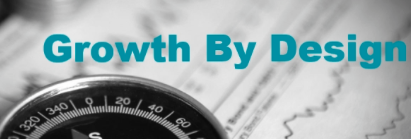Wealth Building Strategies

Once again there isn’t really much to say about the current state of the equity market. The question is whether these prices can be maintained as we go through earnings season. Some companies will have received a boost from the unseasonably warm weather in Q1 this year versus last year, while others won’t be impacted, and in Q2 we will see the opposite. Thus, in the last month the reaction to bad news has been pretty macho. I don’t think that can continue, but then again I certainly didn’t expect the market to be as strong as it has been since the February lows.

The Evidence-Based Investor Video series is a service provided by Paul Philip and the team at Financial Wealth Builders Securities
 “I am not a product of my circumstances. I am a product of my decisions.”
“I am not a product of my circumstances. I am a product of my decisions.”In this decision-making vacuum, the difficulty is to discern between emotion and intuition. I believe intuition is drawn from previous similar experiences that enable us to recall lessons or extrapolate results in a way that gives us additional guidance. Emotional decisions are based on human nature and undisciplined forces that trigger negative behaviors.
Trusting intuition does not come easily since we are often overwhelmed by human nature (for example, fight or flight response) or become frozen by fear (non-decision). In addition, we will use confirmation bias to seek out more information to justify the decision we have already made in our head, rather than going with the sparse data and feeling in our heart.
How do you go about doing that practically? Try the following:
Start Small: get into the habit of making rapid decisions on small matters, so you start to trust yourself more. Don’t overthink any small decision, just respond rapidly particularly if you have a strong feeling about the decision.
Be Positive: Fear heightens our insecurities or negativity, forcing us to seek more certainty when it may not exist. Stay positive, and intuition will rise up within you more naturally.
Be Mindful: Be more aware of how you feel, your psychology or mindset, when making important decisions, and then determine how much of the feeling is rooted in fear or courage. It will help you
.
Don’t Over Analyze: Go with the best information you have in the time available, and then move forward. Over analyzing will drown out you’re your inner voice.
If you go with intuition and it doesn’t work out, try to figure out why. What was it that let you down? Try to understand why and take the time to make improvements. Like any habit, it takes continuous practice, over a long period of time to make it stick. Intuition is one of those soft areas that can be critical in decision making, and understanding it can really help make us avoid making material and costly failures.
By Eamonn Percy
So, how can ordinary investors apply the academic evidence – the lessons learned from more than a hundred years of rigorous research? How can they apply that to achieving their financial goals?
Well, this might sound dramatic, but the work of Louis Bachelier, and of Nobel Prize-winners like Samuelson, Sharpe and Fama, should make us question almost everything we thought we knew about investing; and almost everything the financial industry and the media tell us we should be doing. Let’s watch….
“If you are serious about investing and building wealth the video documentary series ‘How To Win The Losers Game” is a must see. It’s excellent.
After watching the video if you want to learn more about better low-cost, long-term, low-maintenance, diversified investment strategies, download our free guide “12 Essential Ideas For Building Wealth” by clicking on the banner at the top of this page.
Paul Philip, Financial Wealth Builders Securities
 “Early to bed and early to rise, makes a man healthy, wealthy, and wise,” Ben Franklin advised almost 300 years ago.
“Early to bed and early to rise, makes a man healthy, wealthy, and wise,” Ben Franklin advised almost 300 years ago.
|













